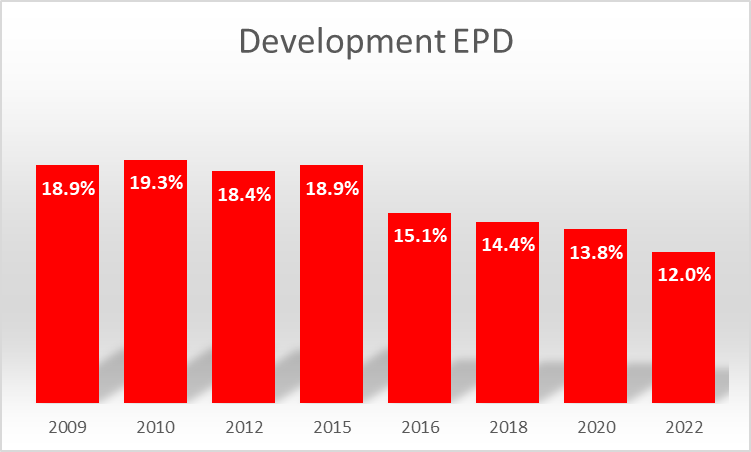
According to the Swiss Earnings Structure Survey (2022), the current pay gap is 12%. The pay gap is illegal and directly contravenes the Gender Equality Act laid down in the Federal Constitution.
The date of Equal Pay Day changes from year to year, since it illustrates the current pay gap. If a man receives his salary starting from 1 January, 2025, a woman will have to work 12% of the year for free until she starts getting paid too, i.e. until 17 February, 2025.
As we do every year, we are once again focusing on a specific topic:
It is still women who do the largest proportion of care work and, as a result, work mostly part-time. This reduces their income and career prospects.
"Do you have time?" is therefore not a rhetorical question, but a meaningful one, especially for a woman who is committed to her career but also wants to have a family with children, is involved in the community or in voluntary work, cares for relatives, and also needs to make sure that she herself remains mentally and physically healthy. Whether she calls it me-time, self-care, or mindfulness, it is clear that every woman who handles a lot of the responsibilities listed above asks herself the question "How much time do I have for myself and is that enough?" over and over again.
Time as a resource also needs to be distributed fairly. The scarcity of this resource in everyday working and family life has an impact on our finances, our career opportunities, and our health. It shows once again—as in many other aspects—that women in Switzerland are not primarily disadvantaged legally, but above all structurally, and are still held back by social constraints, i.e. they are subject to gender roles that allocate tasks in the world of work and in the family.
The resource of time is closely tied to equal opportunities in the world of work. To achieve this equality, we need
a fair division of household labor and paid work
external childcare
new working time models such as a 4-day week, top-sharing, job-sharing, etc.
fair allocation of and/or remuneration for care work
voluntary work / militia work
fair distribution and definition of leisure time
enough time for self-care
We all have to work together to eliminate structural disadvantages by influencing politics, changing our gender roles in society, and making our decisions carefully, because these also influence how we will live in old age. Unfortunately, young women in particular are often not aware that they are setting the course at the latest when starting a family, with the (partial) withdrawal from working life this often entails.
Our career choices and the decision to work part-time are also in our hands. Alliance F illustrates how these and other life decisions influence our salary, our career opportunities, and our pensions with its new cash or crash tool that lets you calculate the impact of your decisions.
The public sector should set an example in encouraging equal pay. In signing the Charter, which was launched in 2016, public authorities – in their role as employers, subsidy-providers and procurers of services – encourage the implementation of equal pay in their areas of influence. Since November 2019 it has also been possible for state-associated organisations to sign up to the Charter. The joint commitment is intended to send a signal to public and private employees.
Further information
Elisabeth Baume-Schneider, Conseillère fédérale, Département fédéral de l'intérieur DFI